Transcription
Jordan: Hello and welcome everybody. I'm here today with Grant Ferguson from Jumpstart Finance. JumpStart's just been around since September, but it really is kind of a merging of previous things, and that's really what we're gonna learn about more today. Um, I'm excited to learn more and hear about your story. Grant, thanks for being here.
Grant Ferguson: Thanks for having me. Glad to be here.
Jordan: Go through your background. Tell us a little bit more about your yourself and kind of what brought you to where you are today.
Grant Ferguson: Yeah, absolutely. So, um. I guess I'm what you'd call nowadays an acquisition entrepreneur. Um, and it's somebody that buys a business rather than starting a business from scratch. I have been involved in the startup world and started businesses and raised capital and sold 'em, and I've also spent some time in the corporate world usually figuring out ways to get back out of the corporate world. But, uh, I did work for JP Morgan Chase for a number of years, and I spent about 15 years in consulting. Financial services, consulting mostly and have worked for all the big guys, wells and, and Bank of America and others.
Um, but really what I wanted to do about four or five years ago, um, decided I wanted to own and operate my own company again. And, um, you know, there's a number of reasons for that. I think most people can relate. Autonomy is usually the big one. It's not necessarily, at least not initially money or cash flow, uh, but perks of being able to just make the decisions. Uh, know that whatever decisions you make, you have to stand by 'em, whether they're good or bad. And, uh, you don't have anybody to blame. And I like that. Um, uh, that's really for me how I try to live my life and certainly how I try to run my business.
So what I started doing was looking to buy a business spent, you know, a fair bit of time doing that. Uh, nowadays, you know, there's a lot of businesses for sale. In fact, um, in the coming years there'll be about 12 million baby boomer owned businesses and folks are looking to retire. One of the greatest. Wealth transfers, um, in the history of this country is coming up. You know, I think an estimated, you know, $10 trillion just depending on, you know, the stats that you read, but there's, um, a lot of opportunity out there to buy.
Uh, what I saw was great opportunity was look, rather than build something from scratch, as I'd done early in my career. Go find a business that has an established brand that's cash flowing, that's in revenue, that has customers, and then, you know, buy that step in and then help to help to grow it, help to digitize it, help to professionalize it. So that's what I did in late 2000 and built, uh, uh, bought a company called Unsecured Funding Source, which was based in Whitefish at the time. And then, um, helped to grow that company and really. Uh, what we did and what we continue to do under a new entity is just to help entrepreneurs, um, perhaps, ironically, do exactly what I did, which is to get the money they need to buy a business or in many cases to start a franchise.
Um, so it's, it's really an exciting opportunity to help folks do what I did and maybe get out of the daily grind, um, find an opportunity to either buy a family business or someone else's business. And grow it and have autonomy and then over the long run achieve wealth. And as we say, our tagline in, uh, jumpstart Finance, own a Business by owning Your Future. Right. So that's, that's a lot of what we're about.
Jordan: Oh, that's interesting. So you said 2000, so it's been a long time you've been working on this.
Grant Ferguson: Yeah, we've been working on it, um, for, you know, four or five years now. In September of last year, I ended up joining forces with essentially a competitor, a company called All Cap Funding, and, uh, we came together, we set up a new entity called Jumpstart Finance. We really joined forces. Um, it's a very competitive market and so in order to gain market share, obviously, you know, aggressive about marketing and aggressive about getting referral partners, um, and you have to do those things. But, you know, I saw an opportunity to join forces with a competitor and essentially say, Hey, let's, um, gain some market share. Let's add new capabilities internally, and then let's add referral sources. That each of us doesn't have. And, um, we grew the, you know, grew the companies as a result of, of sort of joining forces.
So that's been exciting. One of the things that we do that's different from a lot of the firms in this industry, most of whom are really brokers, meaning they are matching borrowers with banks and lenders, maybe charging a fee based a success fee based on getting people money. And doing a lot of work, which I think is very valuable because most people don't really know, uh, how to go about getting the money to buy a business or a franchise. Um, what we did was we pivoted into a direct lending space. So we have a relationship with a sponsor bank, and we have. Um, a private credit fund that we stood up and it allows us to have our own lending liquidity. So when we're making decisions about funding people, we're not dependent on a third party lender's underwriting criteria or what side of the bed they woke up on, whether they want to fund somebody. We actually have our own liquidity and can make those decisions. So we continue to broker some loans to other lenders, but we have. A lending line and we have access to, uh, capital in order to lend directly, and we're moving more in that direction and want to pivot, you know, um, more towards the direct lending world as well.
Jordan: So you already had a background in finance, which is some of the bigger banks. When you went into this, maybe it was easier because you had that background, but it can be easy. What are some of the toughest things you face like in those first few years?
Grant Ferguson: Yeah, no, it's a great question. Um, because you know, as I've mentioned before, I've been in the startup world. I've been in the Fortune 100 world. I've been in the consulting world seeing many, many different companies. But running your own business is a whole different ballgame, right? And a lot of people that get into acquisition entrepreneurship think, you know, it'll be great. I'll just step in, I'll have all these people underneath me, and I'll easy, easy money. Easy money. I'll press a bunch of buttons. Pull a bunch, you know, I'll talk about my MBA and it'll be great. I'll be really successful. And it's just not, not that way in, in the real world. And unless you've been, um, a small business owner and faced those challenges, then you know, you really, really don't understand it.
But it's a great place to, um, to really test, you know, a lot of your skills and a lot of the things that you've done in other contexts. And I think one of the big things that you find coming from a corporate background or coming from different companies is it's really all on you, right? You don't have. The millions and millions of dollars in budget to spend on marketing. You don't have as much, you know, human resource or, or capital to, to grow. You seize many, many opportunities and you don't necessarily have the bandwidth, financially or human resource wise to take advantage of those opportunities. So, you know, you're constantly driving down the road, keeping the car on the road, and then trying to change the tires and the, the transmission and the oil all at the same time.
So I think that's one of the biggest challenges with small business ownership versus. You know, being in a, in a, in a corporate role, you know, as I've been in my career previously. And I think also just recognizing that, you know, whatever you do has gotta really remain focused on the, on the customer, on the consumer. You know, that you can have all kinds of great strategies and ideas and all kinds of ideas about what the market needs, but it's really what does the market need? And in sort of the cut and thrust of running a business day to day and focus on payroll and cash flow and process and marketing and managing people and hr, you know, not losing sight of what is it the customer's actually experiencing when they engage with our brand. When they come to our website and say, Hey, I need your help and finding a loan, what does that experience look like? And never losing sight of that and just staying really close. To the ground and close to the customer needs. Um, so there's just a couple of things, uh, a couple of challenges, but things that are really, really fun that you don't really get to do in other kinds of roles.
Jordan: Yeah, that's a good attitude. Uh, you mentioned this earlier that really the biggest wealth transfer is coming. It's happening kind of right now because the baby boomers are retiring and a lot of them have started their own businesses. And that's kind of where you come in as you're thinking about, Hey, you know, a lot of times the kids don't wanna take it over. Uh, this is the story I hear, and I'm sure you hear it too. So I guess two questions. One is like for someone that's looking to find a good business like that, how would they do that? And the second one is for someone who's looking to exit, what are their steps, the best steps for them?
Grant Ferguson: Yeah, no, great question. Um, there's a very robust market for businesses for sale, you know, and a lot of digital technology has helped to kind. You know, make that accessible and available. Um, you have, you know, your basic listing sites, which are sort of the equivalent of a Zillow for housing would be a biz buy sell. And, and there are other sites out there like flippa.com, which is more focused on digital businesses. There are. Uh, a range of different, um, brokerages that are involved in helping sellers to sell their businesses. And so many times a business owner will approach a broker and say, Hey, you know, much in the same way as someone might approach a real estate agent. I need help selling my house. I don't really know quite how to go about this or where to list it or how to list it. And so a bro, a business broker is a really valuable resource.
In the day, you know, the internet world, the internet's usually been pretty good about squeezing out the intermediary and creating a direct to consumer platform. So Expedia is a great example of this. You know, prior to that, a lot of people would go to a travel agent to book their flights, you know, to uh, to Minneapolis or whatever. And now you just go on Expedia or go directly to the airline and book it. And so there, there are no more intermediaries in many different industries. And that's been, I think, a good thing for consumers. Maybe not such a great thing for travel agents, although they're really good. They found, they found niches to still operate in.
Jordan: Right. Wedding travel, corporate travel and stuff.
Grant Ferguson: Mm-hmm. But, um, for business, uh, folks selling businesses, you know, number one, it's probably one of the biggest decisions you'll ever make. It's not like some, you know, you're not gonna sell as many businesses typically as you would sell houses or buy houses. And so there's a lot of expertise. You know, there's a need to get at value to get a meaningful valuation, so you know what it's worth. Um, and like anybody, nobody wants to admit their baby is ugly. A lot of us will think overvalue. Uh, our own businesses because we're so close to it emotionally, and it's blood, sweat, and tears over many years to build it. But we need to know what will the market bear, um, when we're selling a business and, you know, what are the right multiples? What is the right valuation? What's the right way to look at the business? You know, in terms of does it have assets? Is it more of a service business? How does it cash flow, et cetera. What is the actual EBITDA or seller discretionary earnings, SDE, you know, that you can use for multiple calculations? So there's a lot of, um, ways. To look at and value business before it goes on the market.
And so as, as, as I mentioned earlier, you've got the biz buy sells of the world. You've got places to go out there and list your business and tell the world about your business. But there's many, many effective brokers that, um, you know, can really help shepherd that transaction through and give a. A seller, a lot of confidence that they're gonna get value, and then they're very good at reaching out to curated buyer lists and things of that nature. Um, so there's, you know, large, large national brokerages and lots of regional brokerages, so that's kind of another way you would get your business on the market.
And then in terms of like a buyer, if you're looking. For a business. So there's a lot of different, um, you know, different search, you know, types of, of businesses. There's somebody called, uh, well there's a company called SMB Deal Hunter. Uh, Helen is a friend of mine. She spends time curating businesses and going through and really looking at the financials. Has a very, very large subscriber list. Interested buyers. Um, and, you know, they would, she would say, this looks like a great opportunity. It's an h HVAC company, you know, in Idaho or whatever, and they've got 10 trucks and here's their cash flow and profitability. And so there's a folks that are kind of doing some of the work for you rather than as a buyer, maybe going on biz buy sell and just clicking on listings, signing NDAs, looking at sims or. Confidential and information, meran, memoranda, uh, and uh, then, you know, basically going through and having these conversations with, with sellers or with brokers, I would suggest a buyer, you know, um, and we're talking really individual buyers now versus private equity or more institutional buyers, but. An individual could look at some of these curated lists.
Ben Kelly is another guy that does the same sort of thing. So lots and lots of resources out there. Um, and there's also a concept called, um, the search funder or search funds where an acquisition entrepreneur can go to certain investors. And, um, you know, say, Hey, I want to buy a business. If they're qualified, the investors say, you go buy a business. We'll maybe help you. You can have a funded search or a self-funded search, but then bring it to us. Bring us the deal, and if we like it, we'll invest in it and you'll have equity. And then you can go and run this business and grow it and, and you'll, you know, have a piece of the pie. And so that's another option. So there's a lot of different ways of doing it. And then I think another thing to look at is just how you go about funding it. But I don't wanna steal your thunder because that might be another. A question of yours.
Jordan: No, it's okay. Yeah, I, I am kind of curious. So let's say I am a buyer and you hear about stories that happen where, let's say they're young, just got outta college, you know, whatever. Maybe they had a few years of experience. Let's say they're 27 and they want to be an entrepreneur. They're really determined and they're choosing instead of building their own, they wanna buy one. They're seeing this opportunity. Um, yeah. In fact, I know someone, he's about my age, I guess, so not 27, but he just bought a business. I think he found it on Flippa. Um, yeah. And I'm kind of, I've just thought I've talked to him some, but I'm really curious about what this process looks like. Like how tough is it to get, can anyone get financing? Like, what are the typical requirements to get financing? Right? What are terms gonna look like? Um, yeah, can you walk me through that? How does that look?
Grant Ferguson: Yeah, yeah, for sure. And it's a very valid question, and even savvy people like yourself, you know, be like, well, I haven't exactly bought a lot of businesses, right? So with you using that, you know, how do you go about doing this, right?
Jordan: Mm-hmm.
Grant Ferguson: And I didn't even, I didn't really fully understand that in most instances. You're getting the business to pay for itself, right?
Jordan: Mm-hmm.
Grant Ferguson: You're getting, so if you're, if you're doing cashflow lending, you're using the existing cashflow in this business to, to fund the purchase in many ways, with some exceptions and other alternatives as well. But again, it's not like, Hey, I'm gonna buy a house. I'm gonna go talk to a mortgage company or a mortgage broker. Everybody knows how that works. Um, and everybody knows there's, you know, certain, um, appraisals that are done and then there's a certain loan to value, um, and so forth on, on a, on a home. You know, when you talk about mortgage lending with a business, it's different. And there's really three big buckets in terms of how most people go about buying businesses or what's available. One is cash, and there's a com combination across these buckets. Of course. Um, one is just cash, so that could be cash that you've saved up. Um, friends and family.
Jordan: Something like friends and family. Exactly. Stuff. You don't have to, let's assume I don't have that. Let's assume I, I'm 27, I got, you know, maybe $20,000 in the bank.
Grant Ferguson: Right, exactly. Yeah. And just, just briefly on that note, if you do have it or if you've got retirement savings, there's also some unique programs that allow you to roll out your retirement, um, from a previous employer's without penalty. Without penalties. You use that. You basically are redeploying it into a new business. You're investing in that business. And you can use the Rollover Business Startup program, which is a an IRS program.
Jordan: Um, is that a 401k? Only 4 0 1 Ks are eligible or any kind of retirement plan? 401k Roth maybe.
Grant Ferguson: Yeah, I, I believe that's correct and I'm not, not an expert in that area, but there are folks that do this all day long. Mm-hmm. And, um, they would, you know, the only key is that it's gotta be tied to an existing or a previous, and not an existing employer. So it's gotta be a prior 401k or retirement savings that can be used. But anyway, the other, the other big things, you know, say, let's assume you don't have retirement. Uh, as much retirement savings or cash, you'd be really looking at equity, um, or, um, debt, right? And so equity, while it feels easy at the time, is typically the most expensive money anyone will ever get, um, especially if you are hugely, wildly successful with this new venture, which of course you would be. And so, um, you've given away a chunk of equity in the company. For some cash. It's helped you get into the business. You're always gonna have that partner or those partners if and until you can buy them out. And you're always gonna have to, you have folks that are looking for a return, not necessarily a bad thing at all, but it's just an important consideration, both in terms of control,
Jordan: you pick wisely, right?
Grant Ferguson: Yes. You, you're, you're really, it's a marriage of sorts and it's a marriage without any of the fun, uh, sometimes as well.
Jordan: Yeah.
Grant Ferguson: So, um, then the other piece of it, piece of it is debt. Right? And that tends to be the most common. So for. You know, for larger businesses, the SBA seven A um, program is really the go-to and that'll go up to $5 million.
In some instances. There can be tag on tack on loans that go along with that, that it gets it above $5 million. But the SBA seven A program is very much a cash flow lending.
Jordan: Yeah, so you gotta show profit, right? Ebitda, you gotta show that this business has cash flow and they care less about, they care more about that probably than my $20,000 down payment or whatever.
Grant Ferguson: Yeah, exactly. So debt service coverage ratios, you know, DC um, DSCR lending, they're absolutely looking at can the business cash flow. And not only that, can the business also cash cashflow enough to pay the new owner or the buyer enough money? The lid to keep the wolf from the door. Right. And there's something called post-closing liquidity that SB lenders will look at. In other words, you know, do you have enough money to pay your mortgage and take care of your family and feed yourself?
Jordan: Mm-hmm.
Grant Ferguson: And that's very important, um, in that kind of lending. And then the other piece, uh, of that lending is going to be down payments, which, um, they're gonna look typically for, um, 10%, up to 30% in some instances, um, of a cash injection from the buyer.
Jordan: Yeah, so there would have to be some cash.
Grant Ferguson: And then, um, the other piece of it is a, a seller note. So if the person selling the business wants to carry a note, you know, as long as there's enough cash injection and that these rules have just recently changed for, for SBA lending of 10% from the buyer, then there can be a seller note that doesn't have to be on standby. So it could be serviced alongside, um, alongside the SBA note. So SBA seven A is often the go-to for larger loans. Now most SBA lenders, um, by the way, the volume of seven a last year in 2024, I think it was 31 billion, and I think estimated 6 billion of that was for business transfers. So there's a lot of volume that goes into the SBA program.
Jordan: That sounds a lot. That's a lot, right?
Grant Ferguson: Yeah, it is. I mean, it's a significant amount of, mm-hmm. Um, lending, I think the average loan size was 400,000 or so. Most of the bigger lenders, though, they may not admit it, but they really stick, they really don't want to do much below a million. I mean, there are others that will do smaller loan amount. When we say million, that's how much they're funding, right?
Jordan: Yes. Yeah. Not valuation, right? This is how much actual cash they're giving.
Grant Ferguson: Exactly right. The loan size. And you know, to be fair, they, there are other programs for smaller loan sizes and, and you know, many lenders will do them, but in reality, what it takes to underwrite a loan of a million and up is, you know, same. Not that different from a hundred thousand. Right. So just a lot more expensive. You get a lot less on it.
Jordan: Yeah, exactly.
Grant Ferguson: And so what we, what we identified was a gap in this acquisition market of under a million and really more kind of between the 50 to $500,000 range.
Jordan: Which you said most of 'em are around 400,000. Yeah. And like yeah, exactly.
Grant Ferguson: If you look at the biz, buy, sell stats, I think 333 40,000 is the average price of business. You know, and these are obviously very small businesses, but, um, it is the, it is the average price. When you look at that gap, you know, you talked about cash earlier. Maybe someone can cobble together 50 K. Mm-hmm. Um, you, you might be more difficult for a younger person or someone who doesn't get help from other people. So in that sort of 50 K to a million or 50 k to 500,000 range, there's a funding gap. And that's very much what we at Jumpstart Finance try to, to help fill. And there's a, a number of ways of doing that, right? There's the ability to, um, to get personal loans based on financial strength and credit worthiness.
Jordan: Does that mean like a second mortgage or even just like a normal loan, I could go there and say, Hey, I just want a loan for myself. They don't even say, they don't have to show any financials, like business financials for that.
Grant Ferguson: Yeah, so you can go get a personal unsecured loan, and that loan is gonna be based on your credit score, based on your income, based on your debt, DTI or debt to income ratios. And you go get that loan and you can really use it for most lenders will, you know, ask you are you using it for a major purchase or for home improvement or what have you. You can use this money for a major purchase, which is a business, or you can use part of it for that. And, um, at the end of the day, you've got that loan secured on the basis of your own personal credit worthiness that has absolutely nothing to do with the business you're buying. So you can use that money to, um, to buy a business or you can use it to. You know, go on a, a trip to Mexico. Right? So you're responsible for paying it personally.
Jordan: Mm-hmm.
Grant Ferguson: And that's the main thing. As you mentioned, you can also go look at the value that you might have in a home if you own a home and, uh, or just general real estate backed lending. And so that might be a heloc or we're working right now with a partner that does a HELOC that's attached to a credit card. And so it works more like a line of credit where, you know, just use the money as you. Draw down on it, then you're responsible for repaying that. Right? So, but it is secured lending. So you've got basically unsecured personal loans, and then you've got secured personal loans that are based on your, uh, home and, uh, and collateralized by, you know, personal, usually residential real estate, but could also be commercial real estate. And, um, and then we also are just an example as a private lender, non-bank lender. We have a, the jumpstart loan, which goes up to $250,000 right now and is, um, secured, uh, often by, um, real estate, but, but mostly by personal guarantee. And then a UCC filing on the business that you're buying or on the franchise that you're buying. And then of course, that's based very much on credit score and income. So we like to say we bet on the jockey, and then we make sure that the horse has got. You know, four legs has made it around the track a couple times.
Jordan: Yeah.
Grant Ferguson: If it's a franchise or if it's a business that someone's buying, you know, we wanna look at that business and make sure it's cash flowing and so forth. But still, you're very much focused on the, um, on the individual. So when you get into these smaller loan sizes, um, rather than it becoming cash flow lending or debt service coverage, um, type lending, you're looking mu much, so much more so at the personal credit worthiness. So that means it's not for everybody, but if you've got a good score, you've got income, you've got a house, you can leverage those things to get the money to buy a business as well.
Jordan: And then the main thing is, like you said, the main things you're checking are you gotta make sure that this individual, they have a good credit, they have some kind of good background with, like you said, a house, whatever, debt to income is probably good. And then the second thing would be looking at, okay, the business, those two parts, right? You're looking at both of those and making sure, hey, business is healthy or has a good track record, like you said, franchise or some kind of good financials. Cash flow. And then also the individual is doing a personal guarantee on this.
Grant Ferguson: Exactly. Now, what you have to be careful about as a buyer is that you don't mix and match too many of these methods. You, you could run a foul of an SBA lender if you sow, let's say the SBA lender is looking for a hundred thousand dollars down payment. Well, I'm just gonna go over here and borrow that money, or I'm gonna go over here and put a HELOC on my home. Well, now that changes.
Jordan: Your debt to income now just changed. Yeah, exactly.
Grant Ferguson: And it also changes if you've collateralized that loan.
Jordan: Mm-hmm.
Grant Ferguson: Then that changes the way the SBA is gonna look at your available collateral for lending. So what the advice I always give is just be 100% transparent with your lender. Don't ever lie to a lender, whatever you do. Um, and, you know, uh, with your SBA lender, if you're working on that, uh, as a buyer, um, just be sure that they're clear about where the down payment funds are gonna come from. They're gonna wanna know that because they're gonna see when they do a final credit check.
Jordan: Yes, exactly.
Grant Ferguson: They're gonna see that, you know, and. They're gonna wanna know that it's not coming in as a loan and it's not gonna mess up as we just said, you know, DTI or it's not gonna have taken a position on collateral that they need to take. So just be very careful about that and honest about it. But, you know, there are ways and there are certain ways of being able to combine some of these methods, especially if you're really just looking at the kind of the non SBA non-conventional lending world. You know, there are ways of. Of combining things like personal loans and HELOCs and, and rollover startup programs from your 401k to get you to the kind of money that you need. Maybe not to 5 million, you know, for most people, but maybe to four or five, you know, a hundred thousand dollars plus. That's enough to get you going and get you in a, get you in a business.
Jordan: Yeah, there's probably a lot of businesses out there where you can do that. Right? That's what you're saying is that Yeah. There a lot of, lot of opportunity there in that area.
Grant Ferguson: Yeah. No, there really is. And not every, no, not every business business has to be a, a $10 million or $5 million business. There's tons and tons of great successful cash flowing businesses that are for sale for less than a million.
Jordan: Mm-hmm.
Grant Ferguson: Um, that a, that an operator could come in. Maybe the, the person is at the point where they wanna retire, they want to move on, and a younger operator might come in and say, Hey, I want to, you know, there's not even a website. For this business, or we have no social media or we don't have, you know, uh, accounting systems. Not to denigrate the prior owner, they just had different priorities.
Jordan: Yeah. Right. A process. They had a process that was working for 20, 30 years and they're ready to just take it to the next level.
Grant Ferguson: Yeah, sure. And take it to the next level and with it, you know, bring in a whole bunch more revenue and grow the business and maybe expand geographically or add new products and services, or add new customer segments and so forth. And so now you've gotten into a business for, you know, a very affordable cost. That can really be a wealth generator for you and a cashflow generator for you, you know, for, uh, years to come. So it's a, and it's exciting opportunity.
Jordan: Well, grant, this has been awesome. I really appreciate your time. I love, the thing I love the most about you is you're helping people like really realize their dreams, right? Like Yeah. Owning their own business and, and really focusing on that market where it probably is overlooked some people with the smart Yeah. Yeah. They're just looking for a business that can provide for them and their family and help them reach the lifestyle they want.
Grant Ferguson: Absolutely. And we talk to people all day long that want to get out of the nine to five, they want to get outta their job. Um, you know, a lot of them are sort of mid to senior level professionals that have just kind of had enough and I've been there. Mm-hmm. Believe me. And it's really fulfilling to help them do that. Right. And one, one of the things I learned. Early in my, uh, career in entrepreneurship was, you know, just because I feel this way, just because I might be, it might be right for me, doesn't make everybody else wrong. So being able to accept that there are some people that just want a job. Yeah. In fact, I would agree. Most people just want a job. They want a great job, and let's hope you have a great boss and a great company and a culture and enjoy it. Do it, you know, pursue it. That's great. And there's nothing wrong with it.
There's some people that just. Have to get out. Yeah. And it just escapes against them to work for other people. And, um, they're just, you know, entrepreneurialism is not for everybody. I personally kind of believe that you're sort of born that way, um, versus, you know, something you can go and learn in school. But there's a lot of really, you know, important tools of the trade. You know, training, knowledge, expertise, you have to have to be successful as an entrepreneur. And so it's great to go and learn those things, but you kind of have the fire or you don't have the fire. But for those who have it, you know, I think it's really fulfilling to be able to help people realize their dreams, as you say. And for those that just want to get out and maybe are a little bit scared of something really, really entrepreneurial, I think franchising is a fantastic hybrid. It's a low risk form of entrepreneurship. You got a proven model, proven brand, tons of support operationally behind you from the brand and the franchisor, and oftentimes a very affordable way to get into business ownership. So we love to help people with that as well.
Jordan: Well, again, I appreciate your time.
Grant Ferguson: Thank you so much. Thank you. It's great to chat with you, Jordan. I appreciate your time.





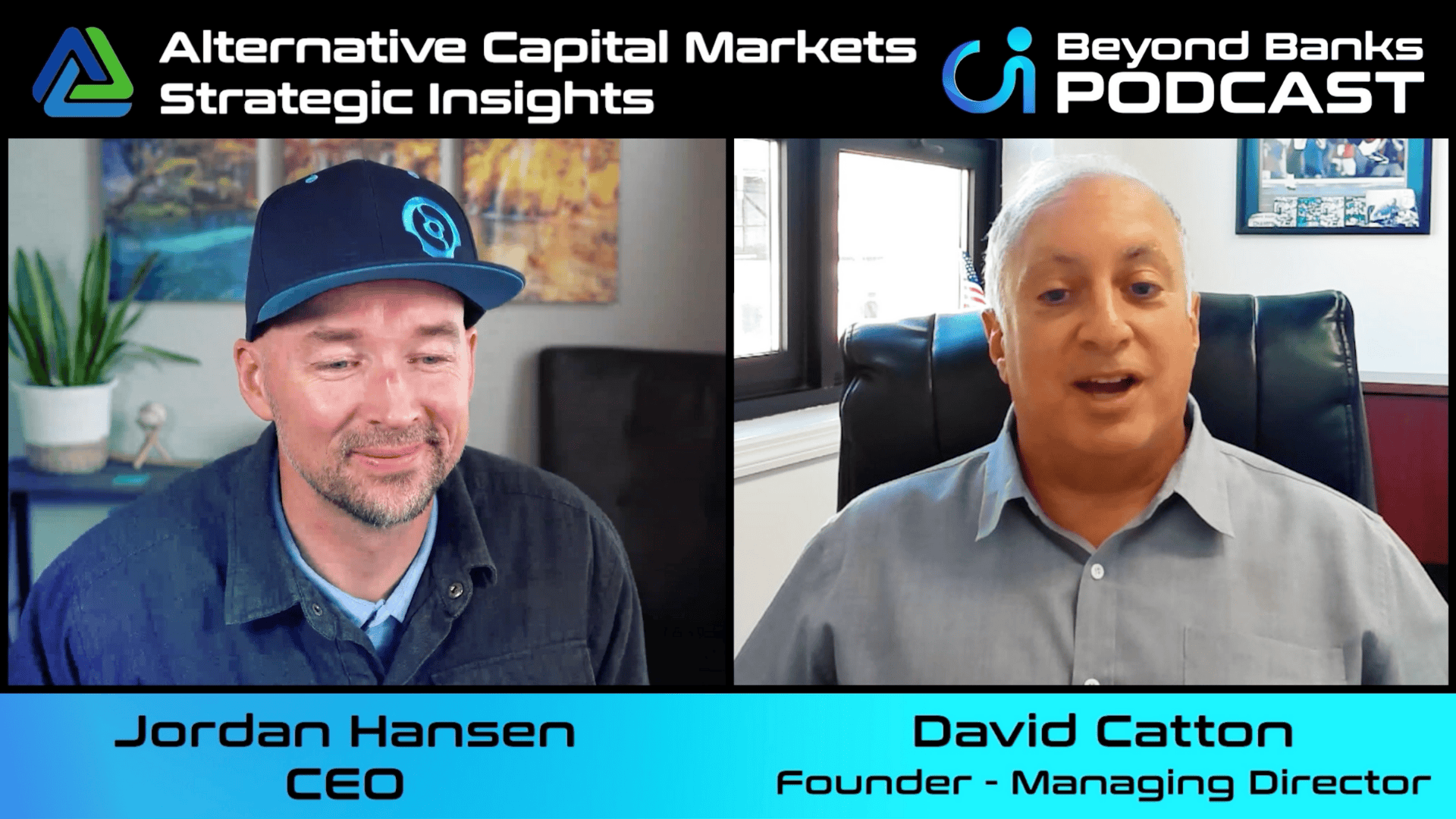
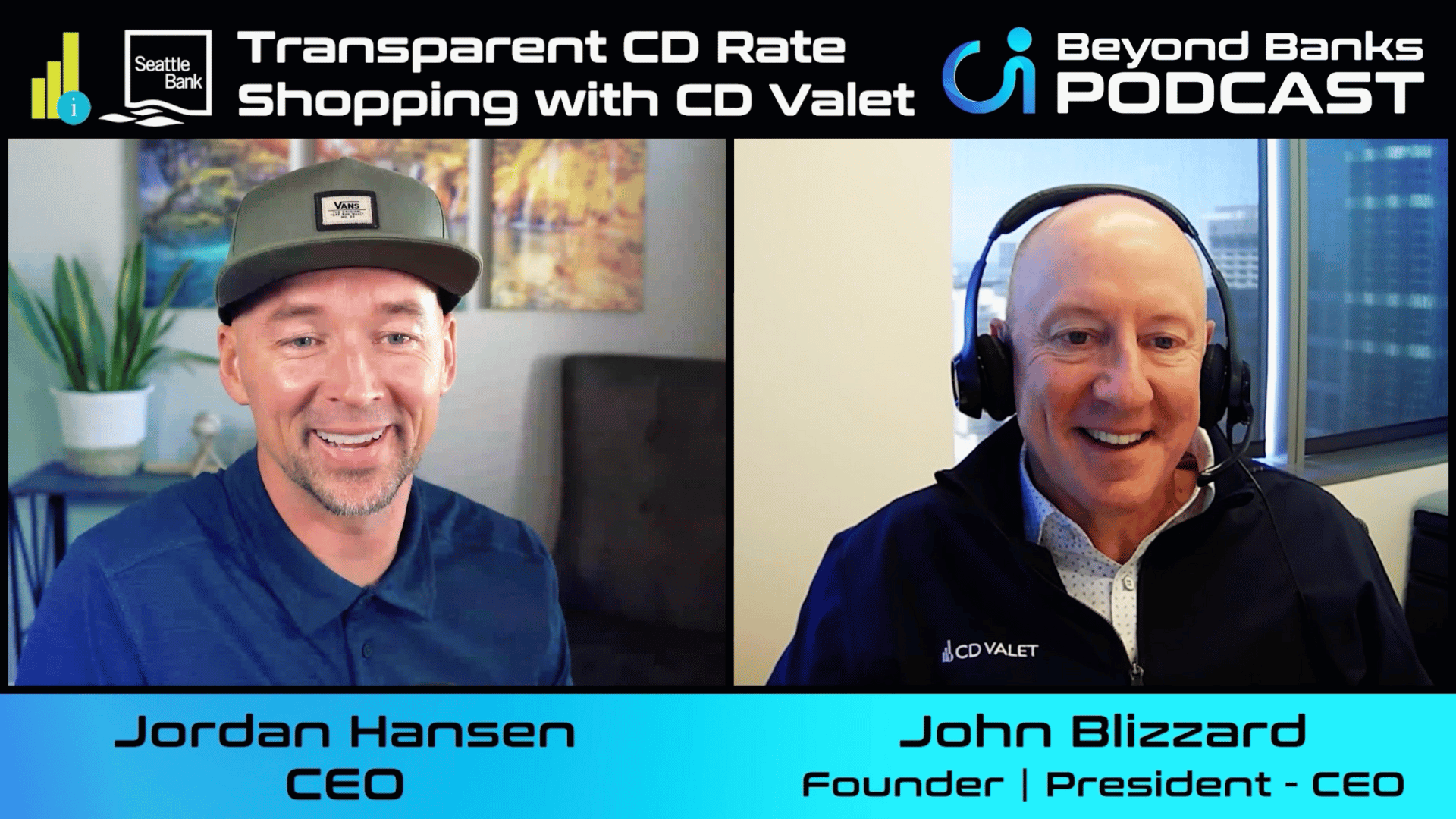


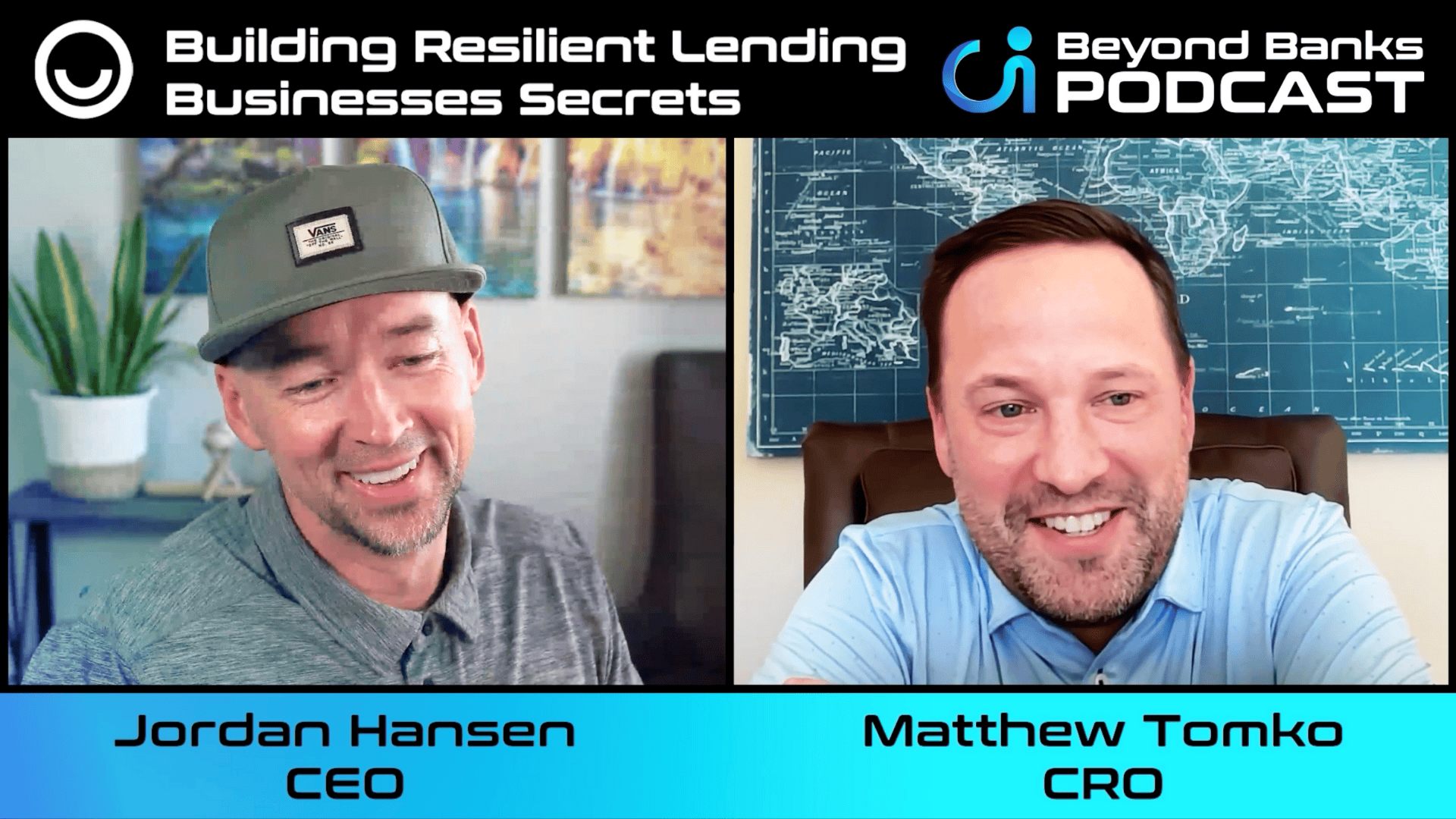

.png)
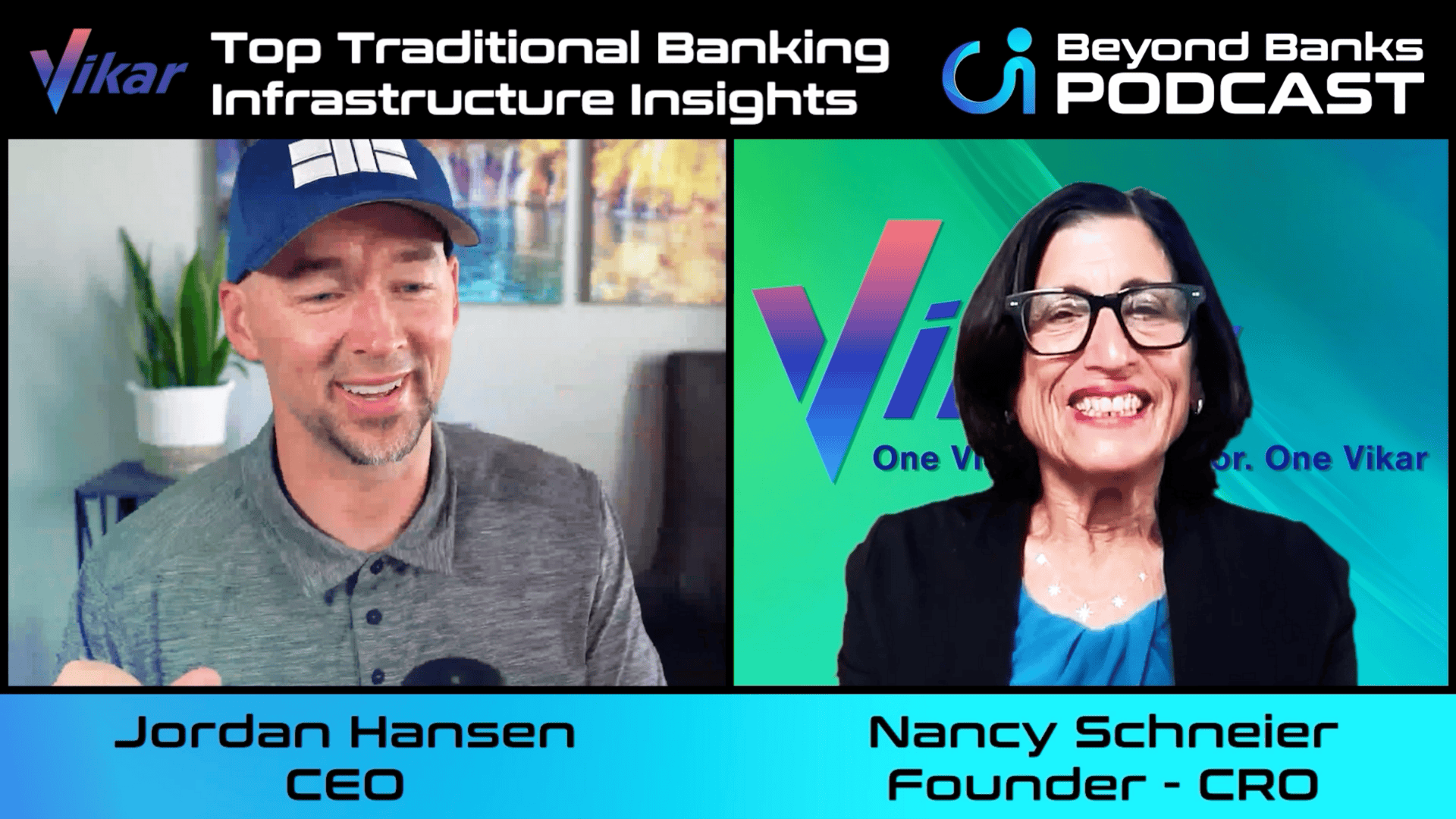
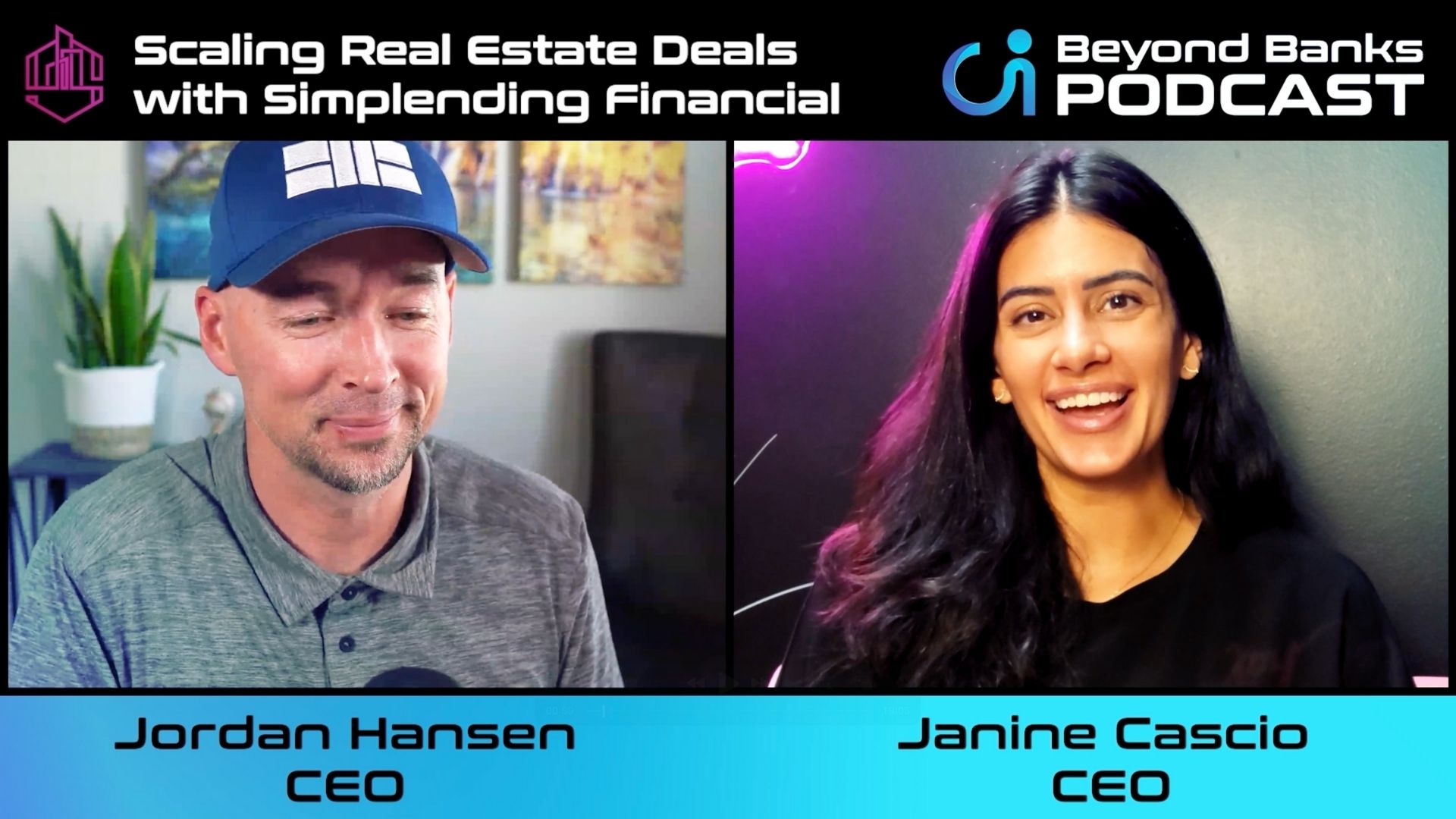
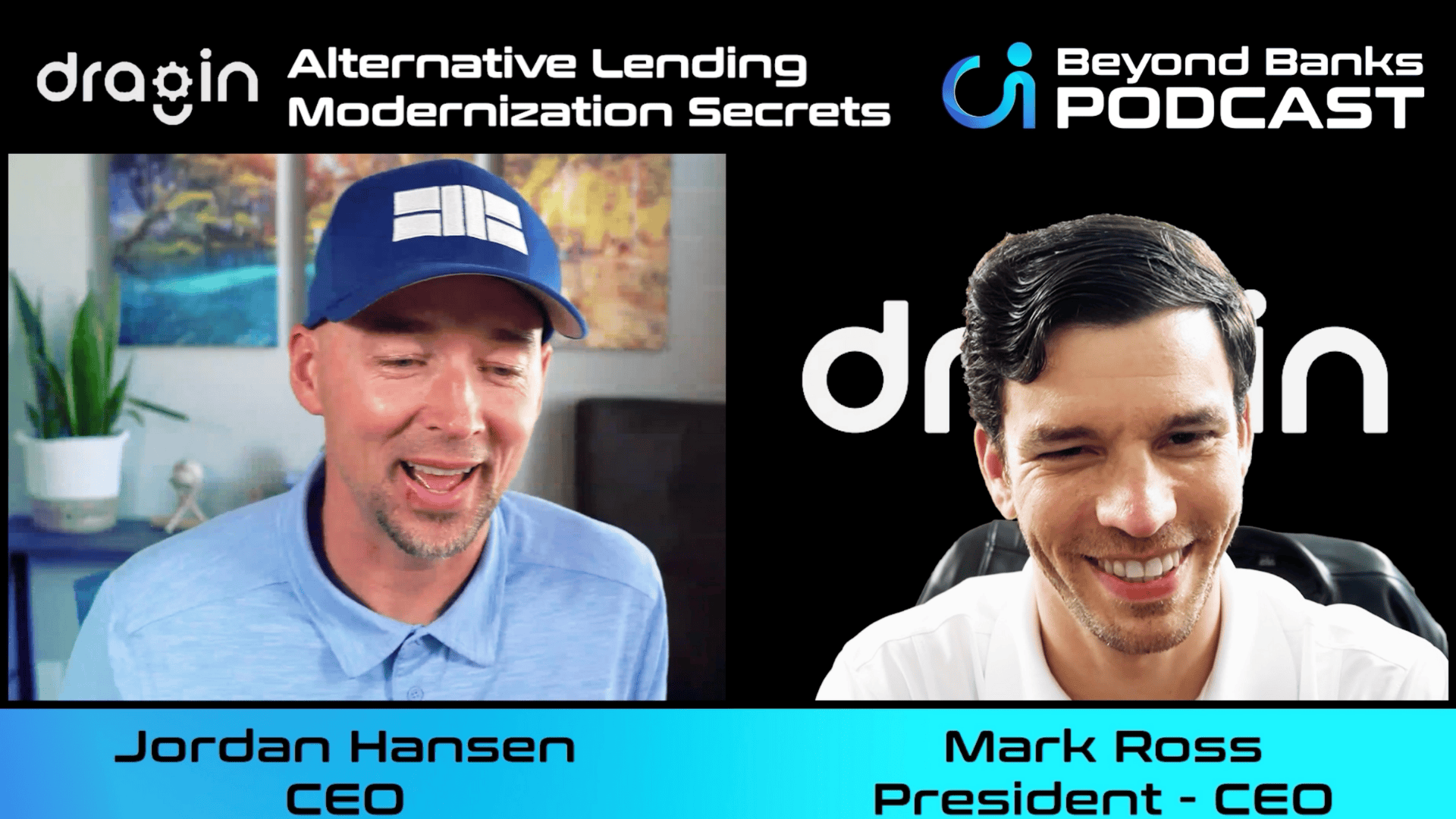
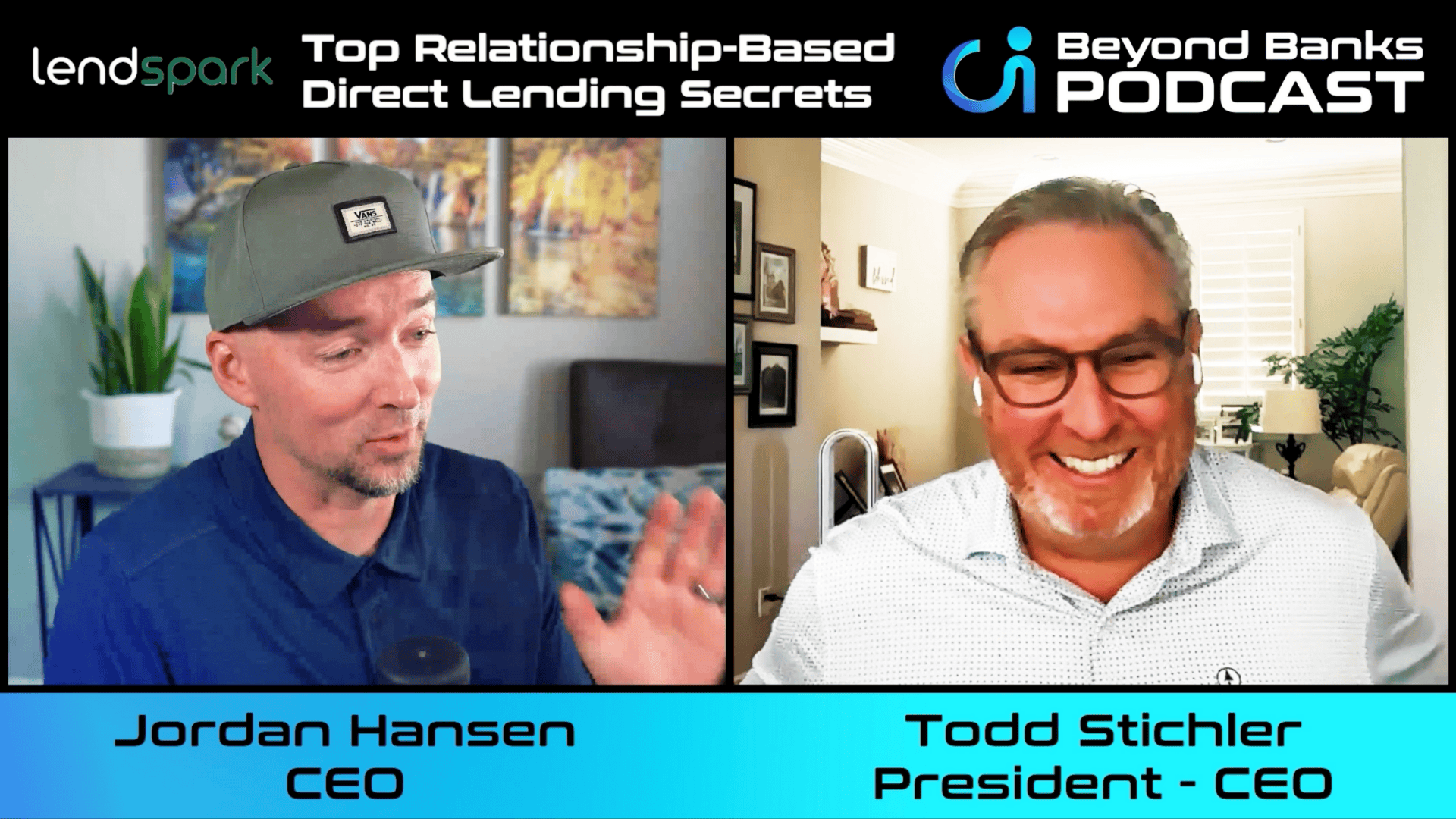
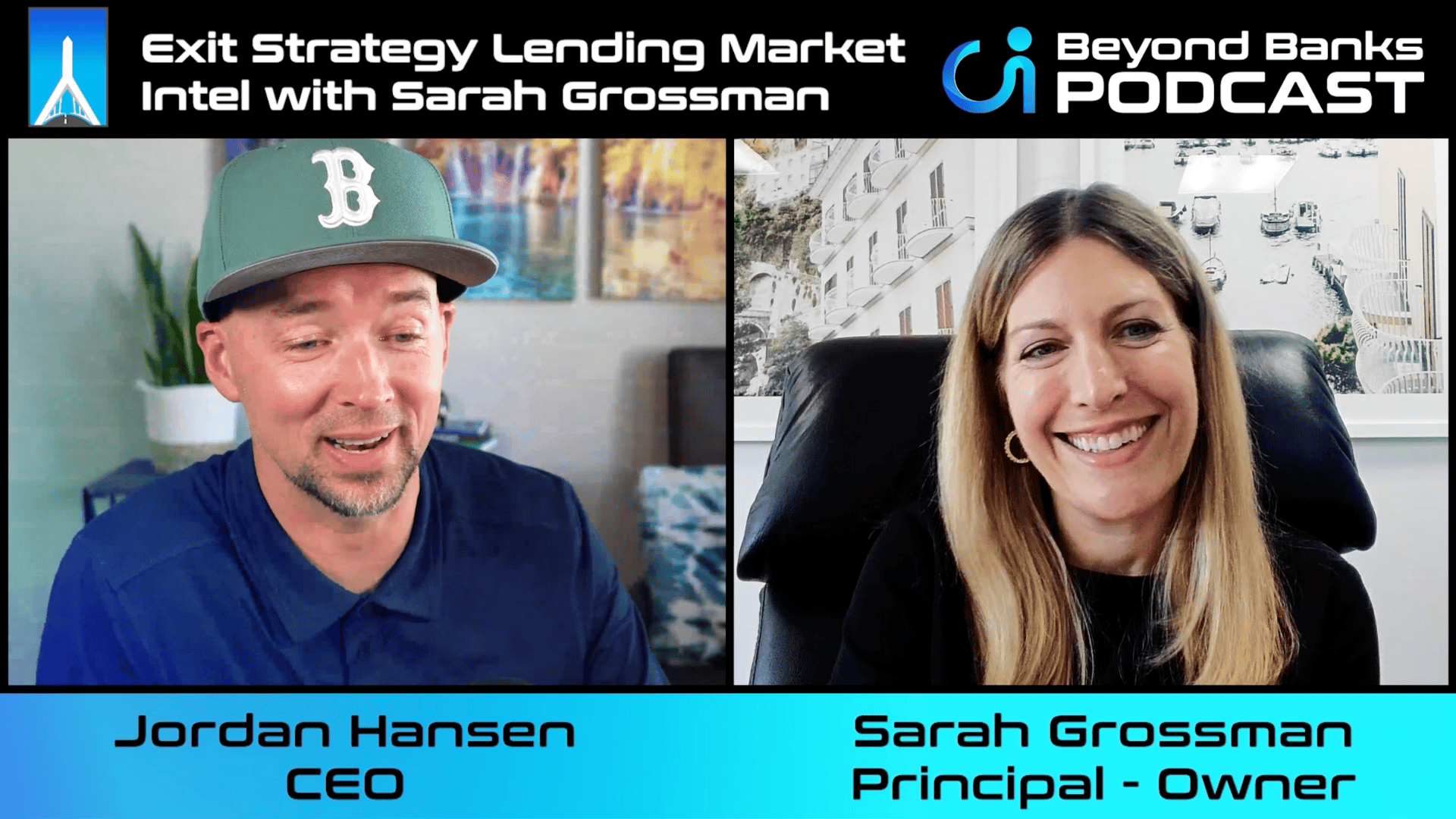
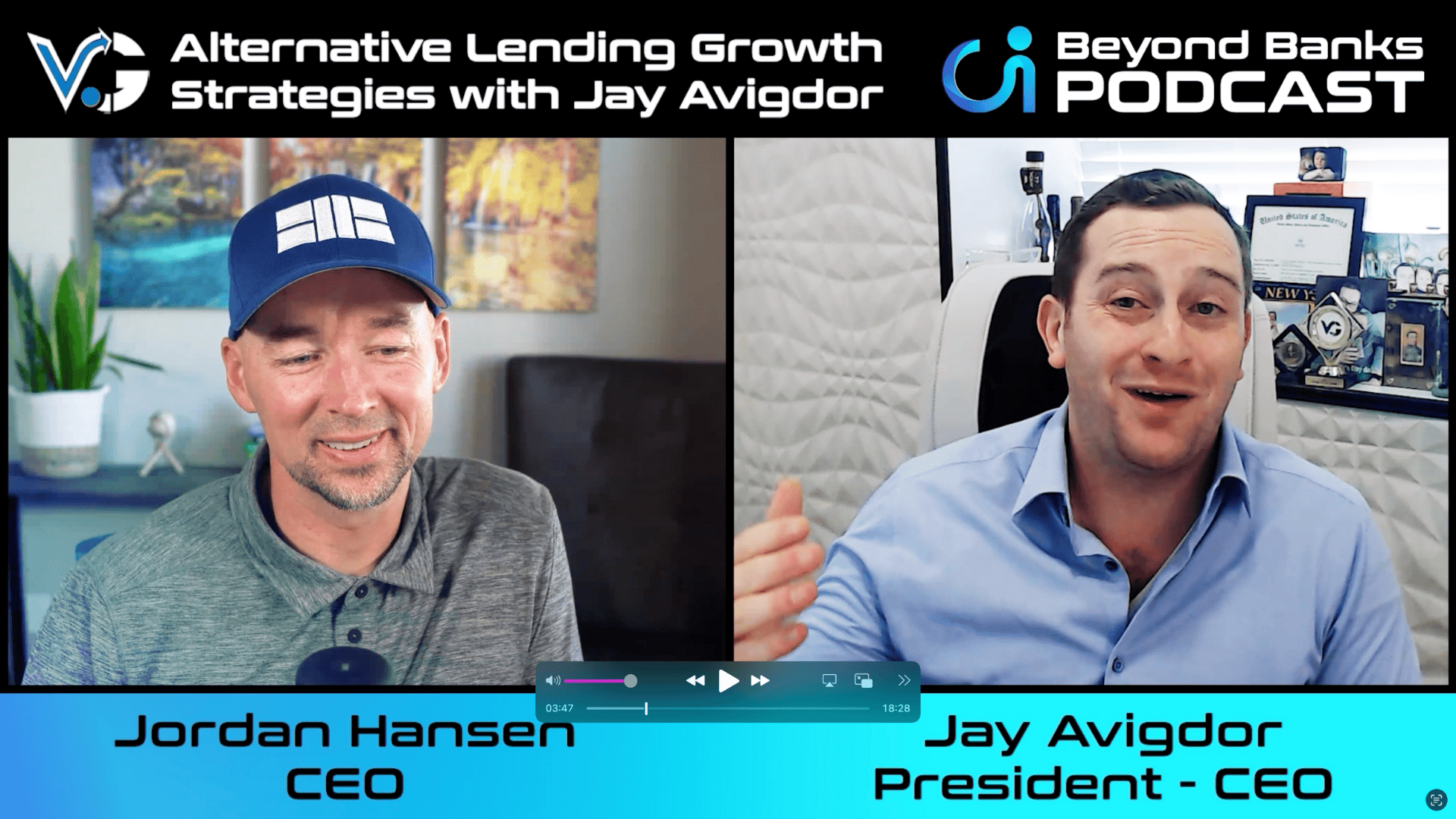
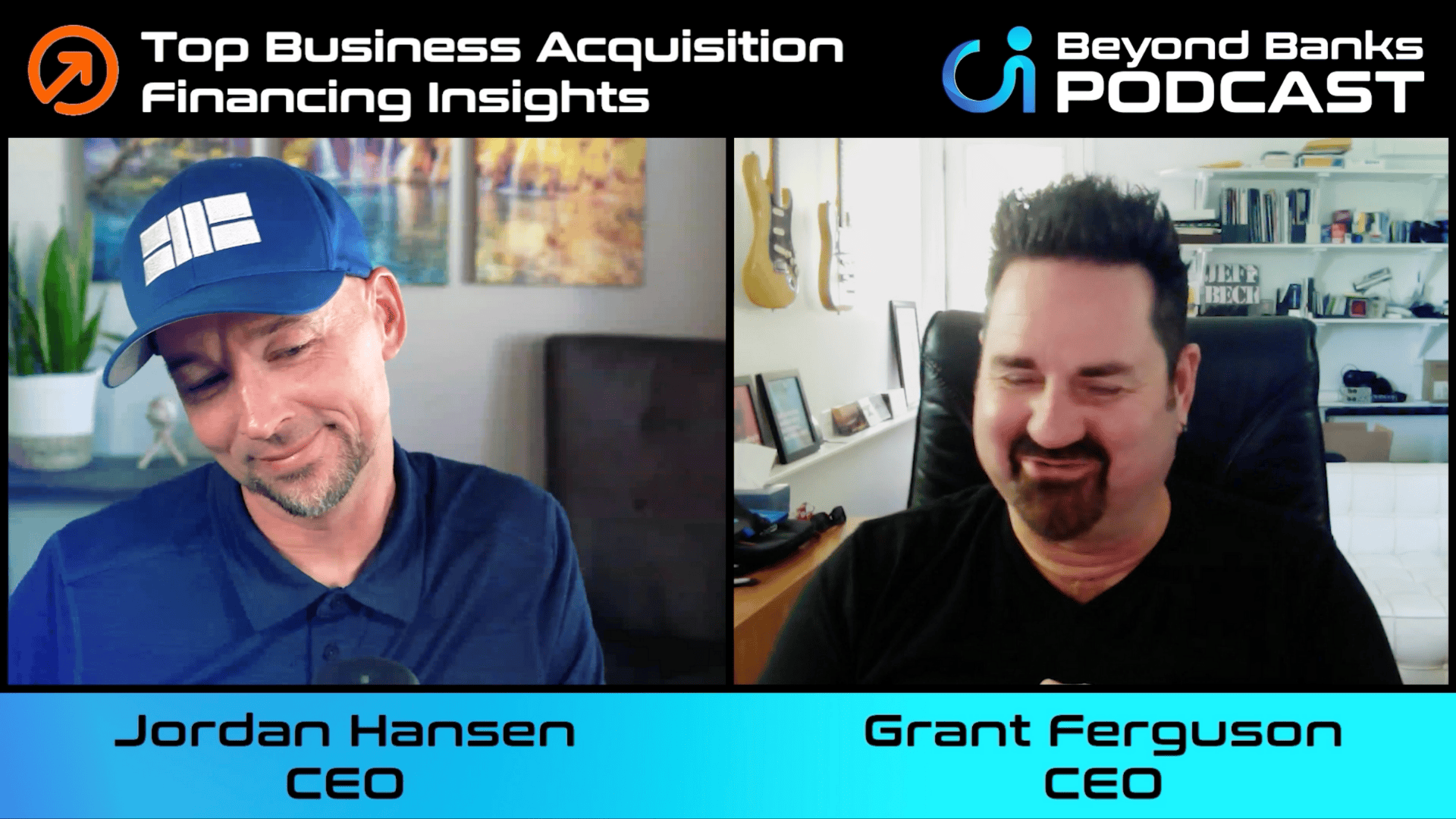
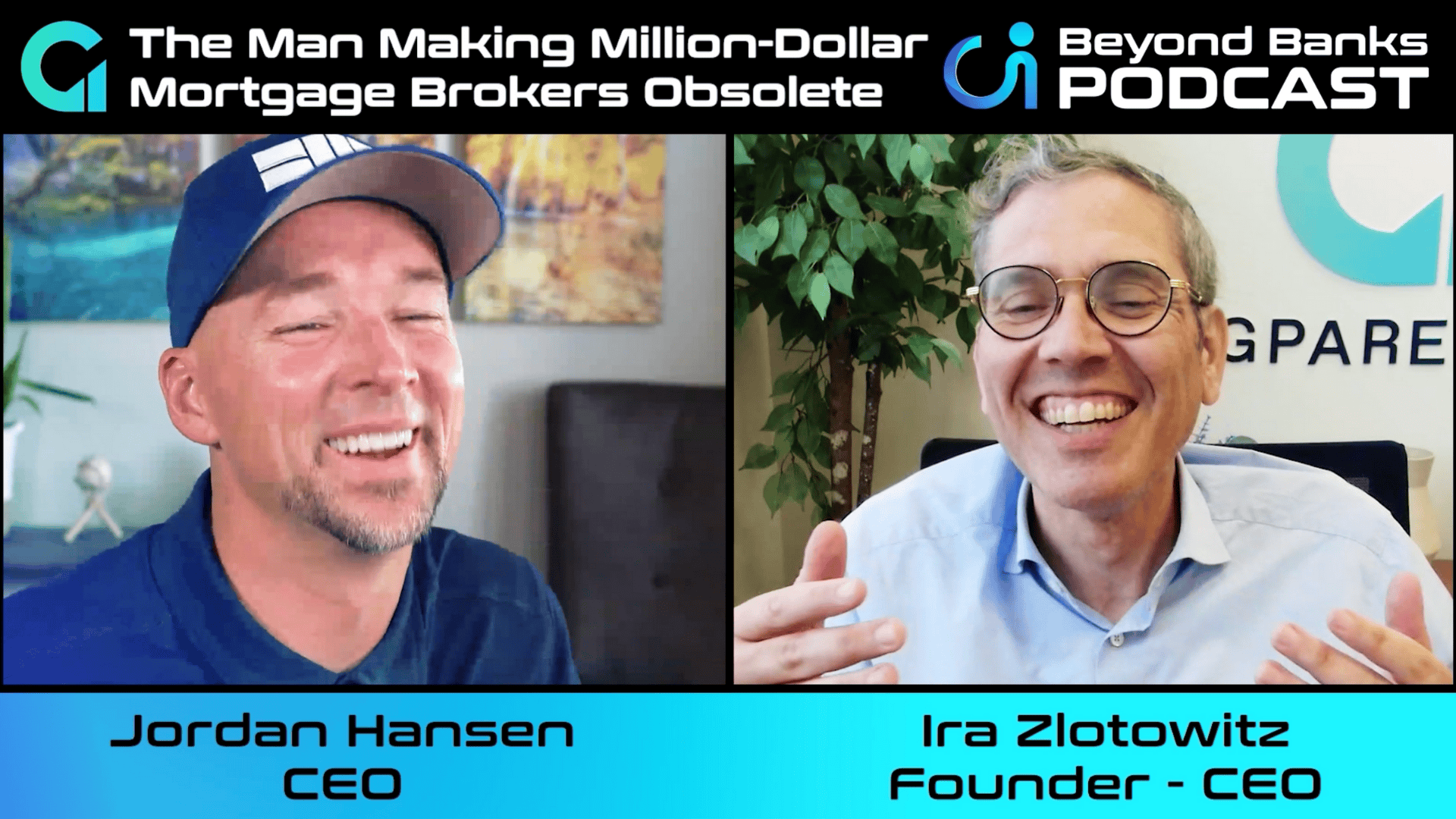
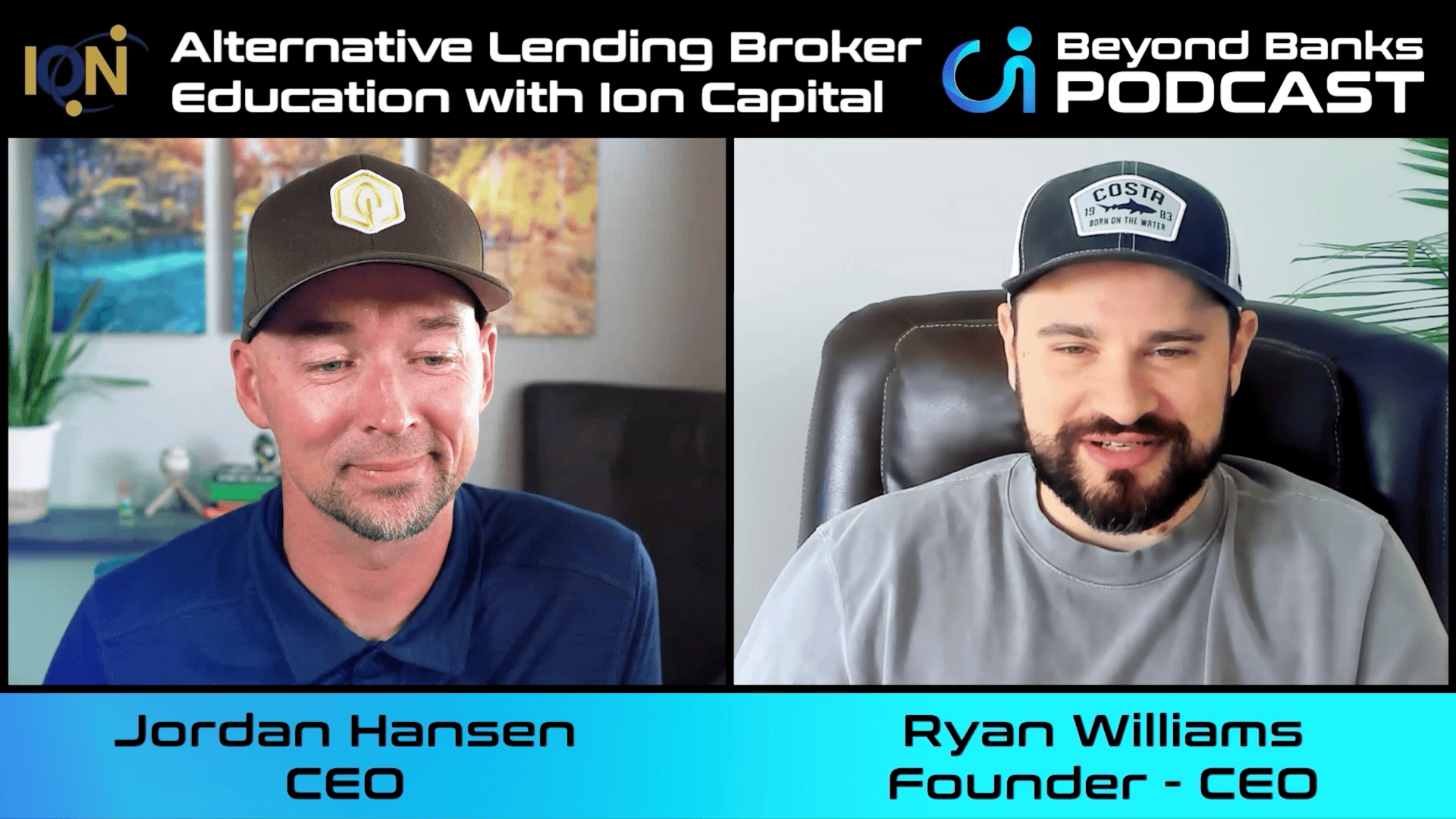
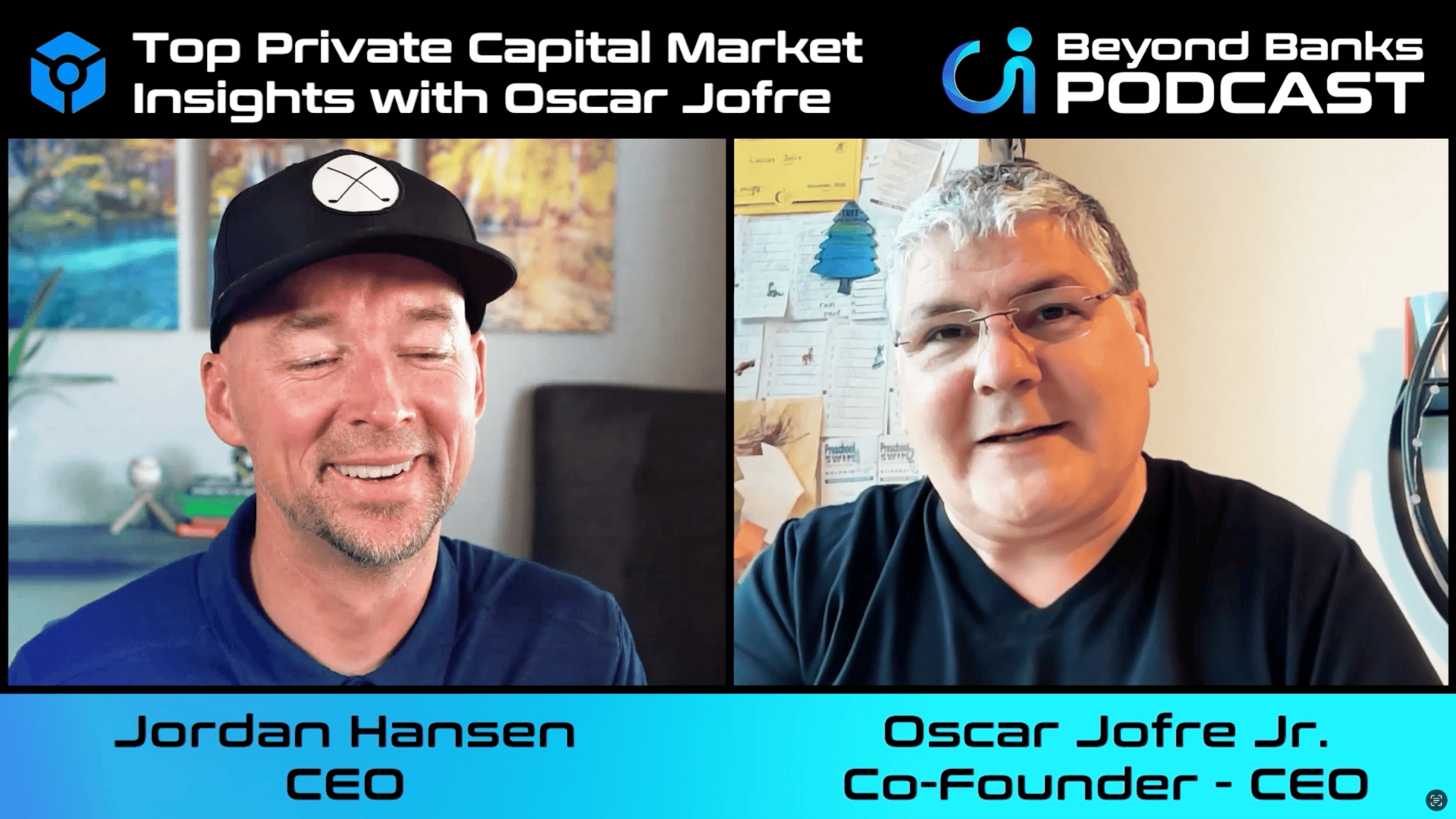

















.png)